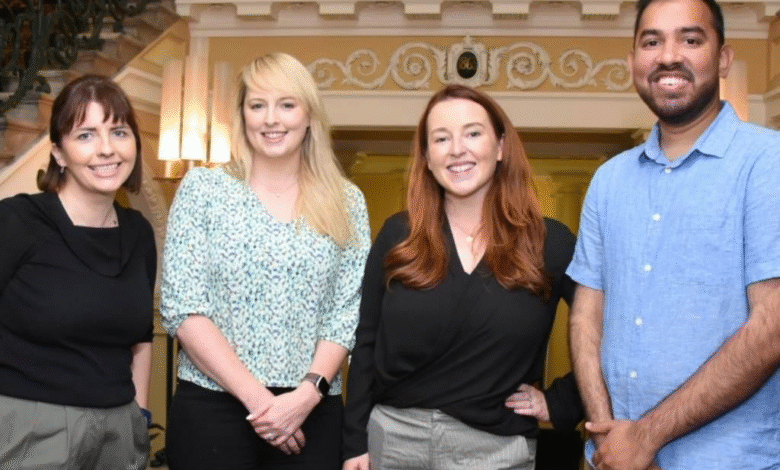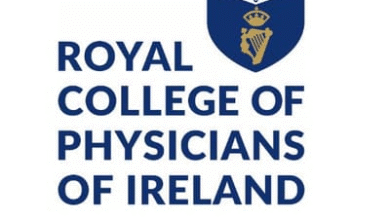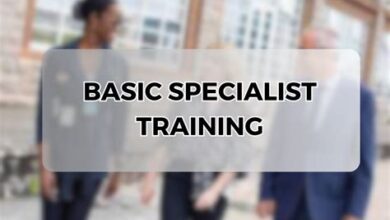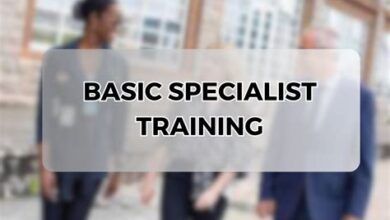Basic Specialist Training in Ireland: Your Essential Guide

Basic Specialist Training in Ireland is an essential phase for budding medical professionals, providing a critical framework for postgraduate training. Designed to span the first two years of a trainee’s career, this program lays the groundwork for deeper specialization in the medical field. Trainees are equipped with the necessary clinical skills and exposure to various specialties, ensuring they can navigate the complexities of modern healthcare. This guide utilizes insights from the Royal College of Physicians of Ireland to highlight the objectives, challenges, and evolving landscape of Basic Specialist Training. With a strong emphasis on comprehensive development, this training is vital for those aiming to establish a successful career in medicine.
Exploring the realm of medical education in Ireland, one discovers a vital program known as Basic Specialist Training (BST), which serves as a launching pad for future specialists. This initial postgraduate training phase is designed to cultivate essential competencies across a variety of medical specializations. Aspiring physicians embark on this journey to gain unified insights into their field while overcoming the challenging dynamics inherent in specialist training. Fundamental training pathways are accentuated, ensuring that the candidates are not only skilled clinically but are also prepared for the demands of their future roles. By focusing on both practical and theoretical knowledge, the program aims to uphold the highest standards set forth by the professional medical community.
Understanding Basic Specialist Training in Ireland
Basic Specialist Training (BST) in Ireland is a crucial stepping stone for medical graduates aiming to specialize. It serves as an essential foundation that imparts vital competencies in clinical medicine and prepares trainees for the dynamic world of healthcare. Over a two-year period, BST allows aspiring specialists to gain firsthand experience in various medical fields, including surgery, pediatrics, and internal medicine. The structured approach ensures that trainees not only develop their medical skills but also acquire essential soft skills needed for effective patient interaction and teamwork.
The BST is designed in alignment with the competency frameworks set out by the Royal College of Physicians of Ireland (RCPI). This ensures that trainees are not just informed about clinical practices but also about the ethical considerations crucial in modern healthcare. The curriculum emphasizes patient-centered care, fostering the necessary qualities and skills required to excel in the demanding field of medicine. As trainees advance through the program, they become well-equipped to face the challenges of postgraduate training and thrive in their chosen specialties.
Curriculum Objectives of Basic Specialist Training
The curriculum objectives of Basic Specialist Training are designed to maximize both professional and personal development. One of the primary goals is to cultivate critical clinical skills, such as patient evaluation, diagnostic reasoning, and therapeutic intervention. This foundational expertise allows trainees to navigate the complexities of healthcare effectively, ensuring they can provide high-quality care to their patients. Moreover, these competencies form the bedrock upon which future specialized training builds, making them indispensable for a successful medical career.
In addition to clinical skills, BST emphasizes the importance of professional growth. Trainees are encouraged to cultivate ethical practices, leadership qualities, and teamwork abilities, which are essential in the collaborative environment of healthcare. The continuous assessment and feedback mechanisms integrated into the program foster a culture of improvement, enabling trainees to reflect on their learning experiences and address areas requiring enhancement. This holistic approach not only prepares future specialists for the challenges of specialized training but also equips them to become effective healthcare leaders.
Navigating the Pathways and Assessments in BST
Navigating through Basic Specialist Training in Ireland involves a structured pathway that defines the key assessments and skills required of trainees. Direct supervision and observation play a pivotal role, allowing educators to monitor and guide trainees as they develop their clinical competencies in real-world settings. The feedback from experienced professionals is integral to this process, reinforcing the practical application of theoretical knowledge acquired in earlier stages of training.
Furthermore, BST encompasses a combination of both written and practical examinations that ensure trainees can demonstrate competency across various medical domains. These assessments are designed to reflect the intricacies of modern medical practice, pushing trainees to devise effective solutions to complex clinical problems. By undergoing rigorous evaluation, trainees not only validate their knowledge but also build the confidence necessary for their subsequent specialties.
Recent Developments in Basic Specialist Training
As the landscape of healthcare evolves, Basic Specialist Training in Ireland continuously adapts to reflect new technological advancements and educational methodologies. One of the most significant changes has been the integration of telemedicine into the training curriculum. This modern approach allows trainees to develop remote patient management skills that are increasingly relevant in today’s digital world, enabling them to reach patients efficiently and effectively.
Moreover, recent developments have included innovative teaching techniques such as simulation-based learning and interactive workshops. These novel approaches not only enhance the learning experience but also prepare trainees for the clinical environment. Regular updates to the competency frameworks by the Royal College of Physicians ensure that trainees remain aligned with contemporary medical practices, highlighting the importance of adaptability and continuous learning in the ever-changing field of healthcare.
Challenges Faced During Basic Specialist Training
Despite the extensive framework designed for Basic Specialist Training, aspiring physicians encounter numerous challenges that can complicate their educational journey. A significant issue is the high competition for limited training placements, which creates added pressure for medical graduates. With an increasing number of candidates vying for the same spots in desired specialties, securing a position can be an arduous task that demands exceptional performance and resilience from trainees.
Resource limitations also pose a significant challenge during BST, often affecting the quality of practical training opportunities available. Trainees may experience shortages in supervision and mentorship, which can hinder their development and learning experiences. Recognizing these challenges, stakeholders are actively discussing reforms aimed at expanding training capacities and improving support systems, ensuring that all medical professionals receive the optimal training necessary for success.
Future Opportunities in Basic Specialist Training
The future of Basic Specialist Training in Ireland is filled with promising opportunities aimed at elevating the quality of medical education. Discussions around expanding training positions across various specialties highlight the commitment to addressing the growing healthcare demands in the country. By increasing the available placements, the training system can accommodate more medical graduates, thereby enhancing the overall competency of the healthcare workforce in Ireland.
Additionally, there is a burgeoning recognition of the importance of support systems in the training process. Enhancing mentorship programs, providing mental health resources, and establishing robust career counseling initiatives will empower trainees to navigate the complexities of their professional journeys. As these reforms take shape, the landscape of Basic Specialist Training will not only evolve but will also create a more supportive environment where aspiring specialists can thrive in their medical careers.
Frequently Asked Questions
What is the purpose of Basic Specialist Training in Ireland?
Basic Specialist Training (BST) in Ireland serves as a foundational program aimed at preparing medical graduates for their future specialty training. Over the course of two years, BST helps trainees develop essential clinical skills, enhances their professional growth, and provides exposure to various specialties. By acquiring core competencies as outlined by the Royal College of Physicians of Ireland (RCPI), participants are effectively equipped to pursue their chosen careers in medicine.
How long does Basic Specialist Training last in Ireland?
Typically, Basic Specialist Training in Ireland spans two years. This structured program allows postgraduate trainees to gain a comprehensive understanding of medical principles and various specialties. During this period, trainees undergo rigorous training, assessments, and evaluations to ensure they achieve the necessary competencies to advance in their medical careers.
What are some challenges faced during Basic Specialist Training in Ireland?
Trainees in Basic Specialist Training in Ireland may encounter several challenges, including fierce competition for limited placement opportunities in specialty training and resource constraints that can affect their learning experience. Factors such as the need for adequate supervision and practical training opportunities can also pose significant obstacles for those undergoing BST.
What is the role of the Royal College of Physicians of Ireland in Basic Specialist Training?
The Royal College of Physicians of Ireland (RCPI) plays a crucial role in Basic Specialist Training by providing the framework for the curriculum, outlining essential competencies, and ensuring that training standards are upheld. The RCPI is responsible for continuous assessment and feedback mechanisms, which are vital for trainee development and success in their future specialties.
What recent developments have occurred in Basic Specialist Training in Ireland?
Recent developments in Basic Specialist Training in Ireland include the integration of telemedicine training, innovative teaching methods like simulations and interactive workshops, and updated competency frameworks to keep pace with the evolving healthcare landscape. These advancements reflect the program’s commitment to providing trainees with relevant skills and knowledge for contemporary medical practice.
How can prospective trainees prepare for Basic Specialist Training in Ireland?
Prospective trainees aiming for Basic Specialist Training in Ireland should focus on building a strong foundational knowledge of medical principles and enhancing their clinical skills. Engaging with resources from the Royal College of Physicians of Ireland, seeking mentorship, and participating in relevant workshops or seminars can significantly improve their preparedness. It’s also beneficial to stay informed about the latest developments in medical training and actively network within the medical community.
| Key Points | Details |
|---|---|
| Purpose of Basic Specialist Training (BST) | To prepare medical graduates for specialty training, ensuring core competencies are achieved. |
| Structure of BST | Typically spans two years, providing exposure to various specialties such as general practice, surgery, etc. |
| Curriculum Objectives | Develop clinical skills, ensure professional growth, and implement continuous assessment. |
| Training Pathways | Includes direct observation, written and practical exams, and feedback mechanisms. |
| Recent Developments | Integration of telemedicine, innovative teaching techniques, and updated competency frameworks. |
| Challenges | High competition for placements and resource limitations impacting practical training. |
| Opportunities for Growth | Expanding training capacity and enhancing support systems for trainees. |
Summary
Basic Specialist Training in Ireland is a crucial gateway for aspiring medical professionals, offering essential knowledge and skills needed for successful careers in healthcare. With a focus on evolving healthcare demands, this training equips future physicians with vital competencies while also addressing challenges and seizing opportunities in the field. As the landscape of medicine continues to change, BST remains a foundational stepping stone that guides trainees towards achieving their professional goals and adapting to modern medical practices.





